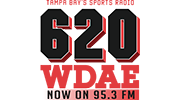Bet Tracking
We’ve all been there before, trying to find clarity while stuck in our gambling haze “Dude, where’d that money go?” It’s the biggest pitfall I see from recreational bettors; remembering their wins while conveniently forgetting losses creating an inaccurate snapshot of how their bankroll looks at any moment in time. Whether the preferred method is a spreadsheet spreadsheet, legal pad, or scrap paper the most successful bettors track every single wager through both good times and bad. Keeping tabs on where your gambling dollar goes is no different than monitoring any other aspect of personal finances. Knowing your expenses (losses), revenues (wins), and savings (bankroll) builds a strong foundation of good habits early on that will pay dividends later as a sports bettor. Trust me, there’s no more humbling experience than inputting losses into your balance sheet to indirectly teach you about discipline and selectivity.
Fortunately now there are easier ways to track every dollar wagered than ever before thanks to innovative apps making their way into the market. We all know your neighborhood bookie or offshore doesn’t want you to have a perfect ledger of your year to date figures but if long term success is what you aspire to (even as a hobby) you’ll want to be proactive. One product I actually recommend is Winafy because the application does the heavy lifting for you, syncing with most offshore books making tracking easier than ever. The product is still going through some developmental changes, mainly to address it’s biggest remaining flaw the inability to work compatibly with every PPH interface. Here’s an article that appeared on their website raising good points about the benefits to tracking all of your bets and would encourage you to experiment with their free trial.
**Note: Next week we’ll dive into a few techniques towards building your bankroll in anticipation of football season and the steps you should be taking now before the fall sneaks up on you.
Seven reasons why you should track your sports bets
1. Save Time
This reason is pretty obvious. Tracking your bets takes time, and it’s not exactly “fun”. The more time you spend entering data into excel or a manual bet tracking tool, the less time you have to study games, handicap, read, learn and research (watch games & tweet!). Time is money and among the most valuable assets a handicapper, or person in general has, so why waste it entering data?
2. Know your bankroll and account balances
Knowing where you stand, what your overall bankroll and balances are is obviously important, but can be hard to track across books, as your state of affairs updates every day and complexity only grows with more sports, in-game/live betting etc. You check your bank balance I’m sure, so having an easy way to monitor your overall balances, ROI, and Net Profit is critical. How much are betting on average? How are you trending, and what is your ROI or z-score? These are answers you should know in your sleep and having an automated, reliable and secure system to track them provides more time to focus on other aspects of your betting activity.
3. Identify disconnects in betting activity
Too many betters have good W/L records, but are down money. Many think they are better at one sport than another, but it’s actually not the case. Are you winning straight bets, but losing parlays? Maybe you are better at college football than you are at NFL betting. Keeping a close pulse on your bets, how many straight vs parlays, or spread vs money line bets you are making, and what sports are most profitable is essential. Having these sorts of analytics at your fingertips via tracking can help improve profitability and grow your bankroll.
4. Improve money management habits
Strong and disciplined money management are crucial to being a successful sports bettor and winning long-term. Strong money management practices are something we spoke to in an earlier post and is certainly worthy of its own discussion. From a tracking perspective, parlays, teasers, big plays on “locks” can destroy your bankroll and profitability. Investigating past wagering behavior and understanding your own tendencies, adjusting your strategy can have a positive impact on performance.
5. Uncover tendencies and personal patterns
Many bettors tend to go off the rails, and desert their disciplined strategy during big losing or winning streaks. Looking back at anomalies in your normal betting patterns can be invaluable. Evaluating why you placed certain bets, why you took action on certain games can be helpful in understanding your personal tendencies and evolving who you are as a sports bettor.
6. Lower juice payments
Understanding how much juice you are paying and then exploring strategies to lower those payments can be a very worthwhile exercise. Consider that if you place 20 bets a week at $100 each, paying -105 instead of -110 odds can save you almost $2,300 per year. wow! Why donate juice to the book when decent analytics and a little bit of shopping can bolster your bankroll in a meaningful way? Tracking your bets, understanding how much of your bankroll is being sucked up by the VIG, and lowering juice payments is a no brainer and something most bettors simply don’t pay enough attention to.
7. Manage bankroll (and your own) performance
Frequently look at your ROI, Record, Profit, Balances. How are your trending? Are your bet sizes in need of adjustment? Do you tend to bet favorites, underdogs, overs, unders? Do you tend to bet home teams? These are the types of personal analytics that can allow you to understand your own profile, and give you a superior edge as a sports bettor. Whether on your own or with the help of a bet tracking platform, frequently reviewing performance is time well spent, especially in the context of the tracking itself being automated.
Special thanks to the people at Winafy for allowing me to repost their article











